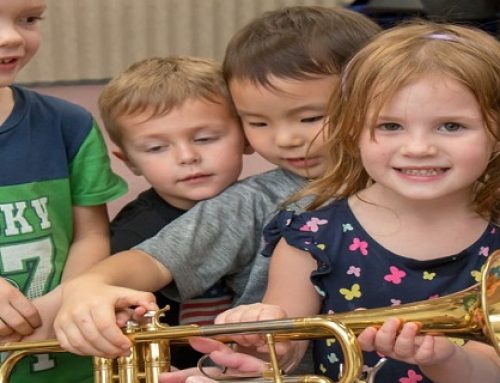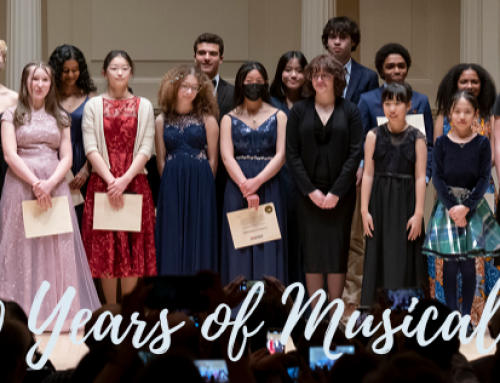Quick Tips to Develop Your Ear!
What is ear training?
Put simply, ear training (also known as aural skills) is how we connect hearing and thinking. Just as you learn to read words in your head, you can learn to hear notes in your head (audiate) to play or sing without assistance. Ear training helps you use what you already know about any given song to identify pitches, intervals, rhythms, and chords, as well as how all of these ideas relate to one another. When you are able to connect what you hear to the cognitive concepts that make music, you understand and appreciate that music on a deeper level.
So, where do you start?
Like any muscle, if you don’t use it, you lose it! Ear training requires exercise and consistency so that over time, you’re able to recognize, audiate, and anticipate musical patterns with ease. We encourage ear training in our music lessons to help you develop and keep this skill.
- Sing the notes! Whether you’re a singer or instrumentalist, singing through your music helps improve listening and note identification. By singing through particularly difficult passages, students integrate the rhythms and pitches and can more easily identify mistakes and obstacles in the music.
- Listen! Whether it’s your own repertoire or an ear training method book, listening and following along is another way to train your ear and start to connect what you’re hearing to what you see on the page.
- Play with others! Join a group and experience playing or singing your part when there are distractions of other parts around you. The more practice you get playing with others, the more independent you’ll become. You’ll start by forcing yourself to tune out the other parts just to get through your own, but eventually, you’ll be able to hear how your part fits in with the other parts. The more independent you become on your part, the more you’ll be able to interact with the music and musicians around you!
- Test yourself! Train your ear by playing games that test your knowledge. The more pitches, intervals, chords, and patterns you can identify from hearing alone, the more connected your playing will be. Feel free to ask your teacher during music lessons to help as well.
Helpful Resources — Test your skills and train your ear for FREE!
https://trainer.thetamusic.com/
In the App Store: EarBeater
Looking for a teacher to help build your aural skills via your instrument? Call us at 301-365-5888 and sign up for an introductory music or music theory lesson, and improve those musicianship skills today!






